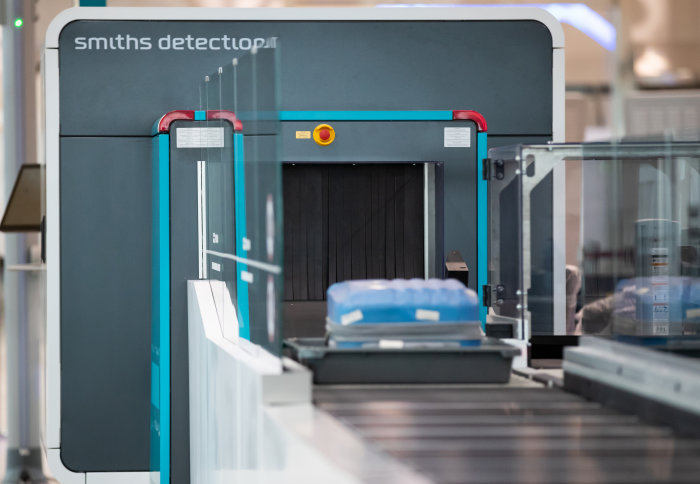Smiths Detection joins Imperial White City’s security and defence ecosystem

Credit: Smiths Detection
Global threat detection and security technologies company Smiths Detection have announced the opening of an office at Imperial College London.
The new office is opened in the I-Hub with the intention of establishing an R&D partnership between the two organizations.
Smiths Detection, part of Smiths Group, specialises in sensors and detection technology for security and defence purposes. Most notably, they build many of the luggage and passenger scanners found at airports around the world.
The company will be based in Central Working White City, Imperial’s co-working facility in the I-Hub which provides a space for Smiths Detection’s scientists and engineers to work more closely with the College’s research community on cutting edge technologies for the defence and security markets.

Tackling security challenges
Imperial’s academic community has a wide range of expertise relevant to sensor and detection technologies, including researchers in the Centre for Terrahertz Science and Engineering such as Professor Norbert Klein, who successfully commercialised a microwave-based bottle scanner for airport checkpoints.
Other researchers from the Department of Bioengineering and Department of Chemistry are involved in developing next-generation biosensors, such as Professor Joshua Edel, who is working on single molecule biological screening using electrical and optical methods.

Smiths’ presence at White City adds to Imperial’s larger ambition to create a security and defence innovation ecosystem, led by the Institute of Security Science and Technology (ISST). Smiths Detection will be sitting among other innovators in the field who have already established offices at White City, including Airbus, Saab and the UK Governement’s Defence and Security Accelerator (DASA).
Professor Deeph Chana, ISST Co-Director, said: “Imperial is bringing together academia, government and some of the top innovators in industry to help address pressing security challenges facing society. Smiths Detection brings a strong homeland security presence to the I-Hub.”
Smiths Detection reinvests around 6 percent of its profits per year into R&D, and regularly partners with leading universities from around the world to help solve problems and collaborate on the development of technologies. However, establishing an office in such a space is a first for the company.
“At Smiths Detection, we’re dedicated to developing innovative product innovative technologies that address our customer’s needs,” said Smiths Detection Vice President for Technology, Matt Clark. “Working in this space with Imperial provides us with the opportunity to accelerate technology development through fresh and diverse ideas and thinking.”
Article text (excluding photos or graphics) © Imperial College London.
Photos and graphics subject to third party copyright used with permission or © Imperial College London.
Reporter
Max Swinscow-Hall
Institute for Security Science & Technology